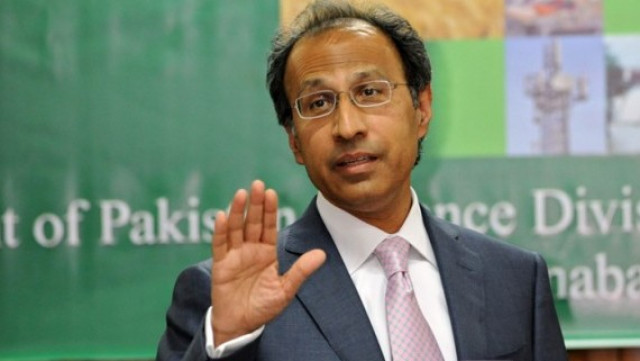Inflation remains biggest challenge for govt

At the post-budget briefing in Islamabad on Sunday, Shaikh tried to allay fears regarding inflation. He said controlled government spending and a freeze on non-development expenditure would help achieve the ambitious four per cent budget deficit target. And this, he argued, would help neutralise the inflationary impact of both the one-per cent increase in sales tax and the withdrawal of subsidies.
Shaikh also justified the imposition of new taxes by saying that the inflationary impact of those would be offset by the reduction of customs duties rates and income tax reliefs. (How tax reliefs worth an estimated Rs 10 billion – Rs 700 million under the head of customs duties cuts and Rs 9 billion in income tax reliefs – are supposed to counter the inflationary impact of new taxes worth Rs133.3 billion and the withdrawal of subsidies worth more than 100 billion is something the good doctor did not explain.)
Meanwhile, the number-crunchers at the Finance Ministry are bandying about a different set of figures and estimates. According to their working, the increase in the sales tax rate and the withdrawal of power sector subsidies will push inflation into the double-digit range during the financial year 2010-11. “We’re estimating inflation will be around 12 per cent and not the budgeted projection of 9.5 per cent,” a ministry official told The Express Tribune.
There are also other discrepancies between what Shaikh and the ministry say.
During the briefing, Shaikh told off journalists for having reported that subsidies on flour and pulses available at the Utility Stores would be withdrawn and insisted the government had budgeted for these under the Rs 3.5 billion sugar sale subsidy.
But the ministry official is quick to discredit his boss. “It was only after media criticism that the government decided to reallocate a specific portion from the sugar subsidy for flour and pulses,” he scoffs.
But the biggest bogey is still the Value Added Tax. The business community and the provinces have been vociferous in their condemnation of what is a key IMF conditionality. And here, the minister himself doesn’t seem to be as sure of the path ahead. Shaikh started off reassuringly enough. “VAT is not a big issue for the IMF; it is a routine matter,” he said, prompting many among the audience to hope Pakistan wouldn’t have to implement the tax by July 1, 2010. But in the very next breath, Shaikh insisted, “The government has committed to the IMF as a sovereign state; the commitment will be fulfilled without hiccups and the programme will continue.”
The arguments were reasoned enough. “The Fund has every right to ask how Islamabad will return its $11.3 billion dollar loan and to do that, the implementation of VAT is necessary,” argued Shaikh. He went on to blame the provincial governments for having delayed implementation and forcing the government to go back to the IMF to “explain”.
But in what looked like an equally quick bid to dispel impressions of the IMF’s ‘villainy’, he said, “The IMF is not worried about the VAT; what they want is the continuation of the tax reforms they say Pakistan has a bad record of implementing.”
Shaikh also took exception to what he referred to as subjective reporting of the budget. “There is no mystery in the budget; let’s not evaluate it through a specific prism.”
Meanwhile, finance secretary Salman Siddique also chose the briefing to clarify the issue of the increase in the salaries of government employees. “The 50 per cent increase in salaries will not apply to cabinet members; their salaries will be reduced by 10 per cent from the next fiscal year,” he explained. He also said that the salaries of the police, judiciary and army would not be increased.
Published in the Express Tribune, June 7th, 2010.



















COMMENTS
Comments are moderated and generally will be posted if they are on-topic and not abusive.
For more information, please see our Comments FAQ